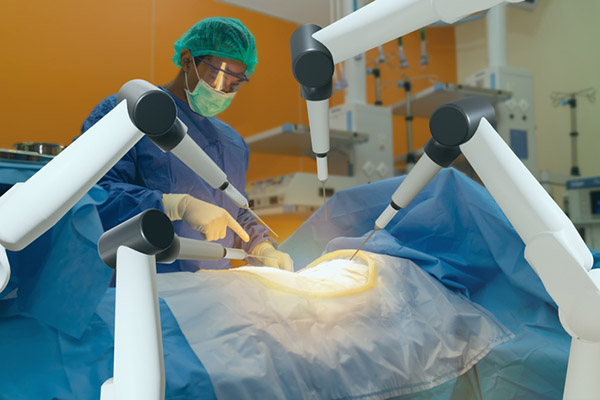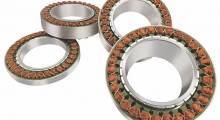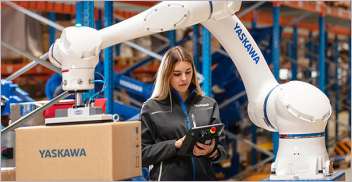The scope of surgical robotics is expanding as manufacturers aim to overcome existing limitations and investors support their vision. Surgical robot manufacturers are working to widen access to higher-quality and more efficient surgeries.
Investors are helping startups realize their vision by pouring millions of dollars into research, development, and commercialization of robotic surgery systems. From joint replacement to abdominal procedures, manufacturers are raising funds to automate different types of surgeries.
Moreover, these companies are launching innovative service models to avoid the huge upfront costs of acquiring surgical robots. Estimates say the market for surgical robotics will grow considerably in the coming years.
The global market for surgical robots could expand from $66.02 billion (U.S.) in 2019 to $119.67 billion by 2030 at a compound annual growth rate (CAGR) of 7.4%, according to a report by Next Move Strategy Consulting.
North America is likely to remain the leading market for surgical robotics, but clinical benefits must outweigh costs, noted the report. Here are some examples of investment activity and trends in the surgical robotics space across the world.
Galen offers surgical robotics as a service
Many surgical robot manufacturers are bringing in venture capital for product development and to expand engineering. Galen Robotics Inc. raised $15 million through an unsubscribed Series A round in October 2022.
The company stated that it will use the funding to completing the final prototype of its flagship robot. Galen Robotics then plans to submit the robot to the U.S. Food & Drug Administration (FDA) for approval.
Robotics as a service (RaaS) is a business model similar to software as a service (SaaS) helping to manage the high cost of adopting systems for robot-assisted surgery.
Galen Robotics offers “digital surgery as a service.” With this model, hospitals and healthcare centers do not have the large upfront expenditure to acquire a high-end robot. This model enables them to pay on the basis of usage.
To ensure seamless collaboration with surgeons and efficient usage of robots, Galen Robotics also plans to use its funding to develop surgeon training modules and expand its clinical sales team.
THINK Surgical opens up implant market
Some surgical robotics developers are raising funding to accelerate the launch of their products. For instance, THINK Surgical, a major developer of systems for orthopedic surgery, raised $100 million in October.
Stuart Simpson, the president and CEO of THINK Surgical, said at the time that the new funding would strengthen the company's financial position. It will also speed up the commercialization of new products, the company said.
Moreover, THINK Surgical said it will use the investment to develop and commercialize a common planning system for multiple robotic platforms. The goal is to enable surgeons to use joint-replacement implants from different manufacturers.
Previously, surgeons have used closed systems and depended upon implants from a single manufacturer. THINK Surgical said it plans to give surgeons the option of using the best implant for each patient's requirements.
The development of surgical robots is a major step forward for minimally invasive procedures. Because of a surge in the number of surgeries worldwide, the market for minimally invasive systems could contribute $55.59 billion by 2030, as per statistics from Next Move Strategy Consulting. Investments in this area are likely to continue in the coming years.
Levita Magnetics looks to pull up quality
With the objective of providing access to higher-quality surgery, Levita Magnetics obtained $26 million in its Series C round in August 2022. The company said it would use the funding to support regulatory filings and commercialization of its Magnetic-Assisted Robotic Surgery (MARS) platform.
The MARS platform adds various clinical benefits to the Levita Magnetic Surgical System, it said. Levita Magnetics added that the MARS platform will provide surgeons with increased visualization and control over equipment.
The company said funding will also help it advance robotics innovation and usage for surgeries. Dr. Alberto Rodriguez-Navarro, the founder and CEO of Levita Magnetics, claimed that MARS will allow patients undergoing abdominal surgeries to suffer less pain and have less scarring than before.
Moreover, magnetic-assisted robotic surgery will enable faster recovery for patients than conventional bariatric surgery, he said.
Forward-thinking investors are supporting manufacturers in the development of innovative surgical robots. They and the startups they fund believe that robot-assisted procedures can improve the quality of care.
Robotics is becoming a significant component of the equipment that surgeons can use efficiently for increasingly complex procedures. The global surgical equipment market is expected to reach $58.58 billion by 2030, according to Next Move Strategy Consulting. Surgical robots will play a crucial role in the growth of that market.

About the author
Supradip B. is CEO of Next Move Strategy Consulting. He is a researcher and business consultant with more than 10 years of experience.
Supradip has been closely monitoring various industry verticals and supporting clients with qualitative and quantitative analysis across technologies, products, and services. He has provided recommendations for critical investment decisions and strategy formulation.
In addition, Supradip worked with companies including Meta, Samsung, NTT Corp., Hitachi High Tech, and Neo Lab. He holds an MBA degree with dual specialization in marketing and finance. He can be reached at [email protected].
Article topics
Email Sign Up














